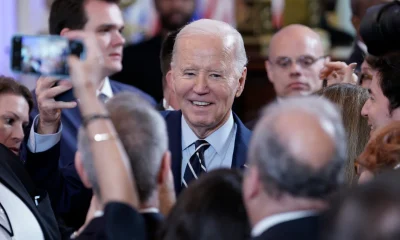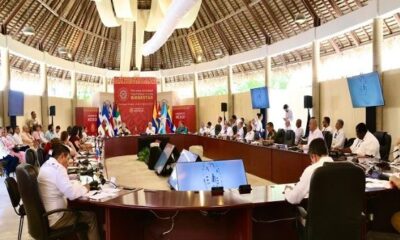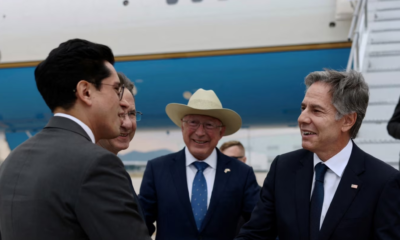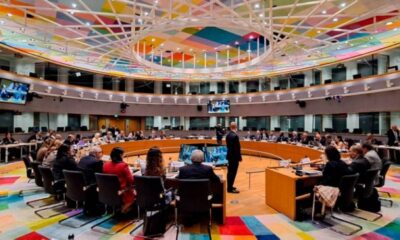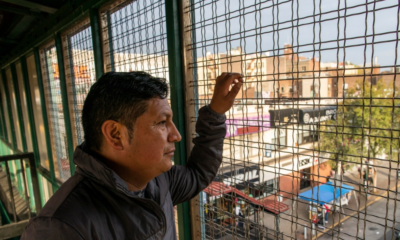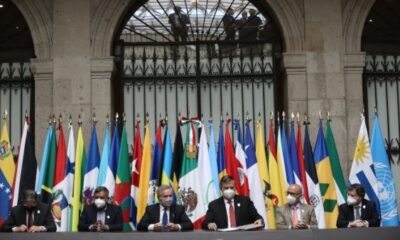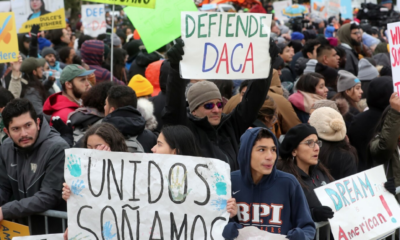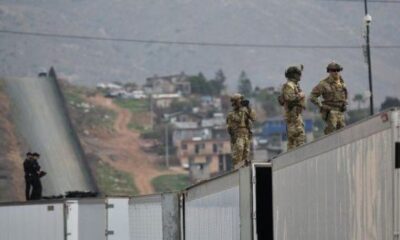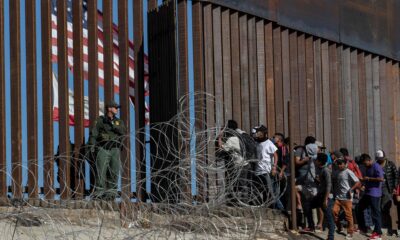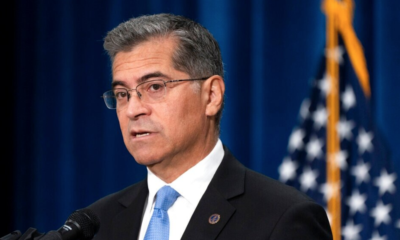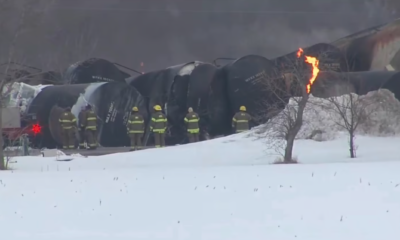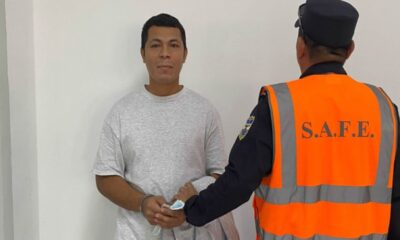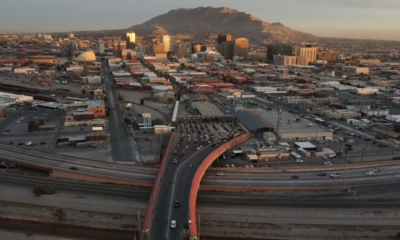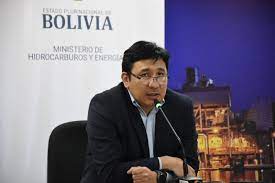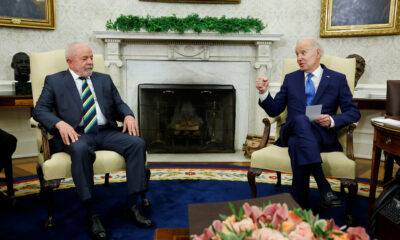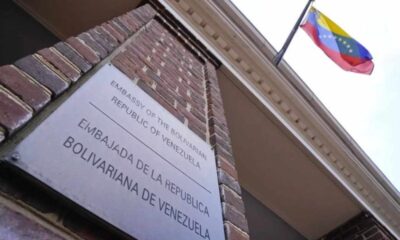International
US bets on new approach to anti-drug policies in Latin America
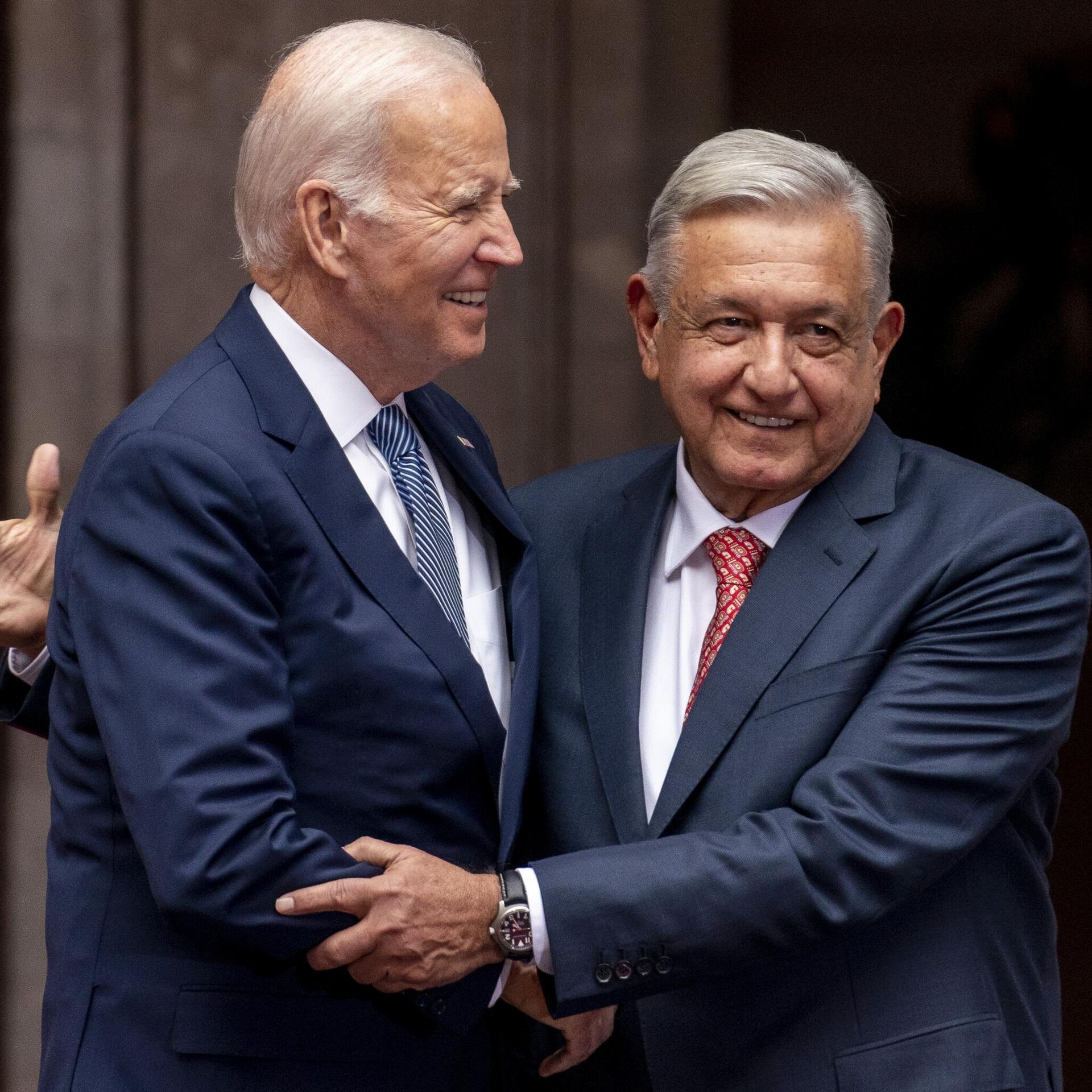
February 14th |
The Biden administration will redouble its domestic efforts and binational cooperation with Mexico to combat the fentanyl crisis in the United States, which has resulted in 70,000 overdose deaths annually.
In an interview with Voice of America, the director of the White House Office of Drug Control Policy, Rahul Gupta, indicated that the fentanyl crisis “does not begin or end at the border”, despite the fact that, according to official data, the vast majority of the synthetic opioid is produced by Mexican cartels and enters the country through the southern border.
The U.S. Drug Enforcement Administration (DEA) reported seizing enough fentanyl in 2022 to potentially have killed the entire U.S. population.
Gupta acknowledged that “there is no question” that “mistakes have been made in the past,” referring to U.S. anti-drug policy and its cooperation with countries in the Western Hemisphere. His statement is an alternate response to the position of Colombian President Gustavo Petro, who has called the anti-drug policy of several U.S. administrations “a failure”.
Question: What are the next steps this administration will take on the fentanyl crisis?
Answer: It is a priority for President Biden. When he went to Mexico to talk to President Lopez Obrador, as well as Prime Minister Trudeau, this was one of the most important things he also talked about. It’s important that we make sure that we have educational campaigns, especially so that children are aware and understand that they have the power not only to be aware of this deadly threat, but also to have Naloxone, the antidote, so that they can help their friends and others. In addition, making sure that we have the treatment available to everyone who needs it – we know that too many Americans today cannot get the treatment – then, along with the antidote, getting more people treated.
In this administration, President Biden highlighted how we have reached the highest levels of fentanyl seizures at the border, double that in 2020 and four times that in 2019. Why? Because we have implemented technology to be able to detect more. But the problem doesn’t start or end at the border. We have to work with Mexico. We have to work with them because we have a shared responsibility for the safety, security and health for the people of both countries.
What exactly is Mexico’s role in this strategy?
Mexico has a very important role as our neighbor to the south, as well as a long-time partner. Our relationship is often complex, but we know that people in Mexico are dying from overdoses and fentanyl intoxication just as they are in the United States. So, it’s very important that we work with a shared sense of responsibility, make sure that we are working to protect our country, that we are going after the bad actors who are intent on harming Americans and Mexicans.
At the same time, we are working to improve public health treatment and the antidote Naloxone, or Narcan, and make it available to anyone who needs it.
When President Biden says the U.S. will hold producers and traffickers accountable here in the U.S., how much does the U.S. trust Mexico on this issue?
It’s very important. As you know, in this administration we have some of the highest numbers of extraditions. We have made sure that we provide assistance to Mexico, in partnership, as a key player in helping us, but we also want to make sure that traffickers, manufacturers and others are held accountable for their actions in taking advantage of vulnerable people. This is important because we want to make sure that they do not profit at the expense of unsuspecting people dying and being poisoned. So it is important, whether in the United States or across the border, that our governments hold bad actors accountable in a strong way.
How close or far do you think the United States is from reversing the trend of fentanyl overdose deaths?
If you look at it, we’ve had over 107,000 [deaths]. And, clearly, the numbers were rising before the pandemic and were exacerbated during the pandemic for obvious reasons, like social isolation, the initial shutdown of treatment and all of that. During the pandemic, especially with President Biden’s leadership, what we’ve seen is more telehealth, which means more health care assistance to provide treatment to people in rural areas, in underserved communities through telemedicine.
We also saw the removal of barriers. And we have also seen an increase in prescribing of antidotes and treatments. Because of some of these activities, combined with the seizure of more fentanyl and the prosecution of traffickers, we are seeing in five months in a row a decrease in the number of people dying from fentanyl overdoses. But let me tell you, that’s not enough, because, while we’re happy to see nearly 3,000 lives saved, we have a long way to go.
Does this White House believe that the war on drugs is a “failed campaign,” as the president of Colombia has called it?
Let me tell you this: when President Petro took office in Colombia early last year, I helped him and worked with him as the first U.S. delegation. We had a good long conversation about it, and I said, “look, we recognize that not all U.S. policies have proven to have been successful, but the important part is that we have a problem where an American dies every five minutes all day long. You have a problem where the economy is very dependent on cocaine production. We need to work productively in our 200-year relationship to see how we can secure a future for both the American people and the Colombian people in a way that complements each other.
And we need to see a way forward that is humane, that protects the environment. Because I flew over with Vice President Marquez and I saw the destruction of illegal mining in the Amazon, illegal crops, and it’s not helpful for Colombians, even because they are looking for a good life, good quality of life. So, it is very important for us when we think about this, to do it in a way that is productive and that is mutually beneficial for security and health.
But would you call the war on drugs a “failed campaign”?
The way I would put this would be: we didn’t even know a few decades ago that addiction was a brain disease. We didn’t know that it is not a disease of choice but a disease of the brain that affects the whole body. We also didn’t know, we now know, that incarcerating yourself doesn’t get you out of trouble. So what are we doing now? We are trying to work to bring treatment to every prison and jail in the United States.
So, what I would answer is very clear, mistakes have been made in the past, there’s no question about that. However, what we need going forward is to look at how we work with public health, public safety, collectively to solve this for Americans, solve this for other people and countries around the world, and the urgency demands that we do it, and we do it in a hurry.
And how do you frame this strategy on drug producers in Colombia and other countries in the Western Hemisphere? Because here in the United States, of course, there is a framework on the public health issue, but they are also trying to catch the bad actors in this. So how do you find that part of this strategy?
When you look at a single mother in Tumaco, Colombia, who is producing coca for her children as a way of life to survive, it’s not so much about crime as it is about livelihood. So, the way we look at this is that we have to make sure that these farmers have the ability to own their own land. Let’s make sure that they have the ability to grow crops that can be exported globally and that they can make a living. It’s very important that as President [Biden] talks a lot about jobs and the importance of jobs, infrastructure in the United States, it’s the same in a way for every country in the world that we have to figure out how to get people gainfully employed, give hope and the ability to have that economic development as a way to address that. And those are exactly some of the things that we’re going to be working with countries like Colombia.
What about the other countries in the Western Hemisphere? How is cooperation on this drug issue?
We know that trafficking and smuggling is a hundreds of billions of dollars business. We know that drugs not only kill Americans, but the profits come back to cause destabilization, more crime and corruption and violence [in those countries]. It’s very important to us as a world leader that we continue to work as good partners with other countries in Latin America. And there is a history of us working with them, but we make sure that we are doing it in a way that gives us results, mutual respect and cooperation so that we can put the weight of the law on the bad actors, while ensuring that people everywhere have the opportunity to live in a safe and healthy way.
And finally, what about Venezuela? There is no relationship or cooperation between the two governments, of course, but Venezuela remains a key player in this industry.
Well, we will continue to focus with our partners in Colombia, and also in Ecuador, to make sure that the people there get the support in terms of both the people coming from Venezuela and the resources. That work will continue, but I don’t have anything new to report on that at this point from a policy change perspective.
International
Spain’s irregular migrant population rises to 840,000, study finds
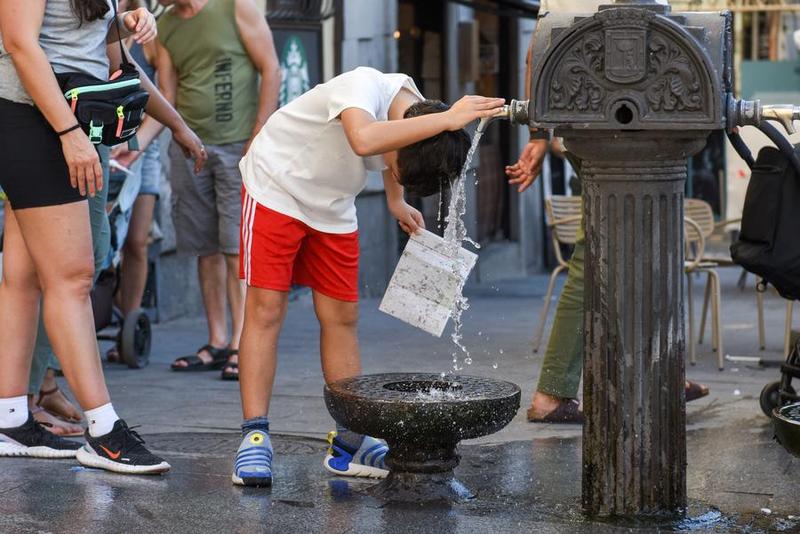
The number of migrants living in Spain without legal residency status continues to rise and has reached 840,000 people, with 91% originating from the Americas, particularly Colombia, Peru and Honduras, according to a report by the Spanish think tank Funcas (Foundation of the Savings Banks).
An estimated 17.2% of the non-EU foreign population living in Spain is in an irregular administrative situation. The estimate is based on the gap between the number of foreign residents effectively living in Spain, according to the National Statistics Institute (INE), and those who hold a residence permit, benefit from international protection, or are in the process of obtaining it.
The data, as of January 1, 2025, point to a notable and sustained increase in irregular migration since 2017, when the estimated figure stood at around 107,000 people, representing 4.2% of the non-EU population residing in Spain.
By origin, migrants from the American continent stand out, totaling around 760,000 people, or 91% of all irregular migrants. Colombians account for nearly 290,000, followed by Peruvians with almost 110,000, and Hondurans with about 90,000. Migrants from Africa (50,000), Asia (15,000) and Europe (14,000) trail far behind.
The figures predate Spain’s latest immigration regulation reform, which came into force in May 2025 and introduces measures to ease access to legal status through residency ties. According to Funcas, the reform would, in principle, tend to reduce the number of migrants in an irregular situation.
International
Historic snowstorm paralyzes Toronto after 60 centimeters of snow

Toronto, Canada’s largest city and the fourth most populous in North America, was largely paralyzed on Monday after a historic snowstorm dumped up to 60 centimeters of snow and sent temperatures plunging to -15 degrees Celsius, authorities said.
Late Sunday, as the scale of the snowfall became clear, city officials declared a climate emergency, triggering extraordinary measures including parking bans on several major streets to facilitate snow removal operations.
Toronto’s public transit authority reported that while some buses remain immobilized, subway and streetcar services are operating with relative normality, though localized disruptions may occur.
A similar situation is affecting the city’s commuter rail network, which remains operational but is experiencing significant delays on its main routes due to the severe weather conditions.
International
Venezuela frees at least 80 political prisoners, NGO says
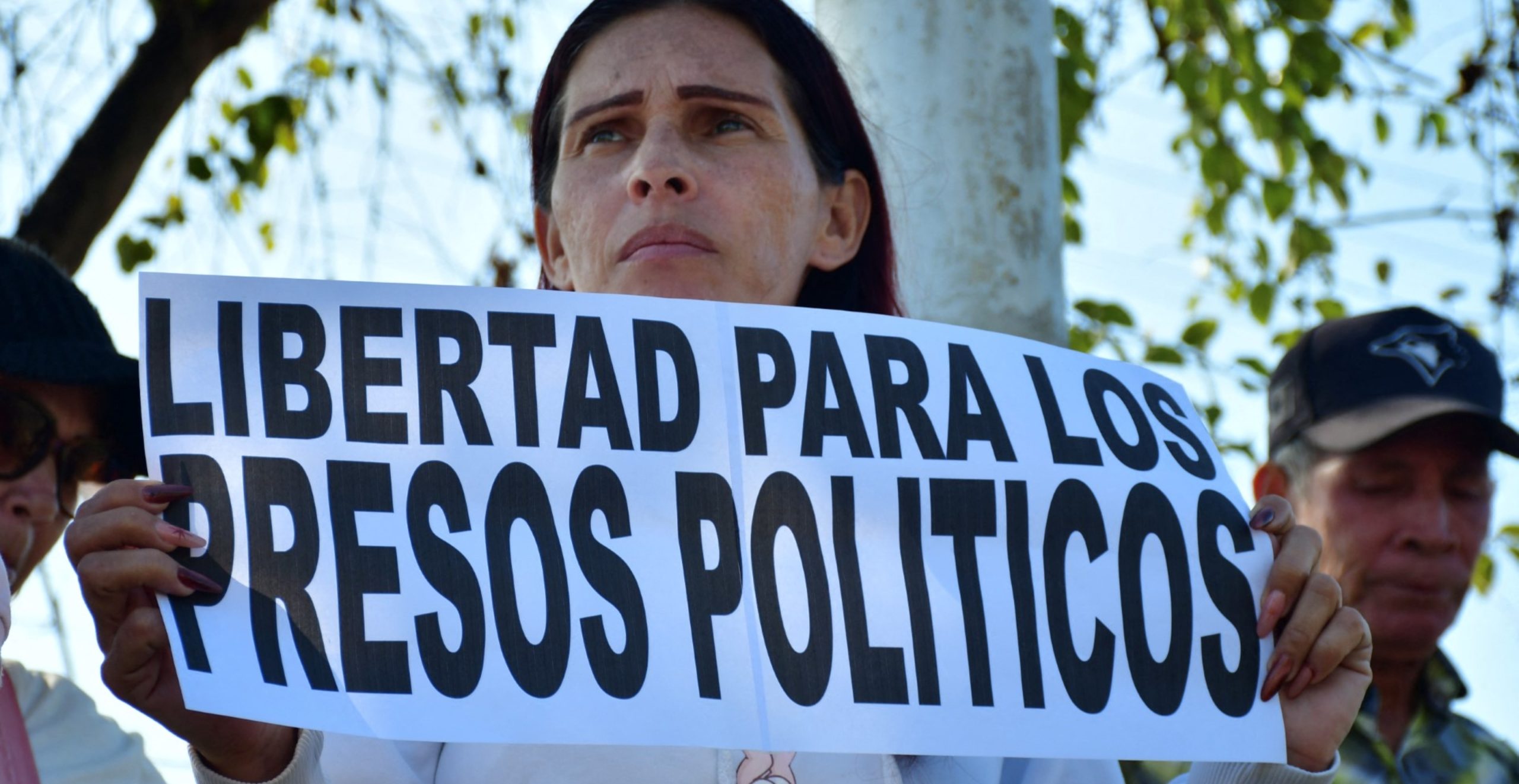
At least 80 political prisoners were released on Sunday across Venezuela, human rights group Foro Penal reported, as the broader process of detainee releases continues at a slow pace under the interim government.
Foro Penal’s director, Alfredo Romero, wrote on social media platform X that verified releases took place nationwide and that the figure could rise as more confirmations are completed.
Attorney Gonzalo Himiob, also from Foro Penal, said the excarcelations occurred during the early hours of the day and emphasized that the number is not yet final pending further verification.
The releases are part of a series of steps announced by Venezuela’s interim leader, Delcy Rodríguez, who took power after the capture of former President Nicolás Maduro in a U.S. military operation on Jan. 3, 2026. Rodríguez has pledged a significant number of liberations but has been criticized by opposition groups and rights organizations for the slow and nontransparent nature of the process.
So far, the Venezuelan government reports that 626 detainees have been freed since December, though independent counts by human rights groups suggest the number of actual political prisoner releases is lower and that many remain behind bars.
Families of those still detained have maintained vigils outside prisons, hopeful for further releases even as broader concerns about political imprisonment and due process persist.
-

 International3 days ago
International3 days agoTrump-Era Defense Plan Prioritizes Border Security and Scales Back Global Commitments
-

 Internacionales4 days ago
Internacionales4 days agoMajor winter storm threatens “catastrophic” ice and snow across much of the U.S.
-

 Central America4 days ago
Central America4 days agoGuatemala’s president rules out negotiations with inmates after prison riots
-

 International4 days ago
International4 days agoGuatemala considers sending high-risk gang members to military prisons
-

 International3 days ago
International3 days agoBogotá and Quito Seek Dialogue After Tariffs and Power Cut Escalate Tensions
-

 International2 days ago
International2 days agoDelcy Rodríguez seeks political agreements after Maduro’s ouster
-

 International4 days ago
International4 days agoRights group says over 5,000 killed in Iran protests, mostly civilians
-

 International2 days ago
International2 days agoFederal immigration agents kill man in Minneapolis, sparking protests and outrage
-

 International19 hours ago
International19 hours agoHistoric snowstorm paralyzes Toronto after 60 centimeters of snow
-

 International19 hours ago
International19 hours agoSpain’s irregular migrant population rises to 840,000, study finds
-

 International20 hours ago
International20 hours agoRights group says nearly 6,000 killed in Iran protest crackdown
-

 Central America20 hours ago
Central America20 hours agoGuatemala seizes over a ton of cocaine hidden in flour at Pacific port
-

 International19 hours ago
International19 hours agoVenezuela frees at least 80 political prisoners, NGO says
-

 International19 hours ago
International19 hours agoEU launches new probe into X over AI-generated fake nude images
-

 International20 hours ago
International20 hours agoFrance debates ban on social media for children under 15
-

 International20 hours ago
International20 hours agoSevere winter storm grips U.S., leaves multiple dead as extreme cold persists





























